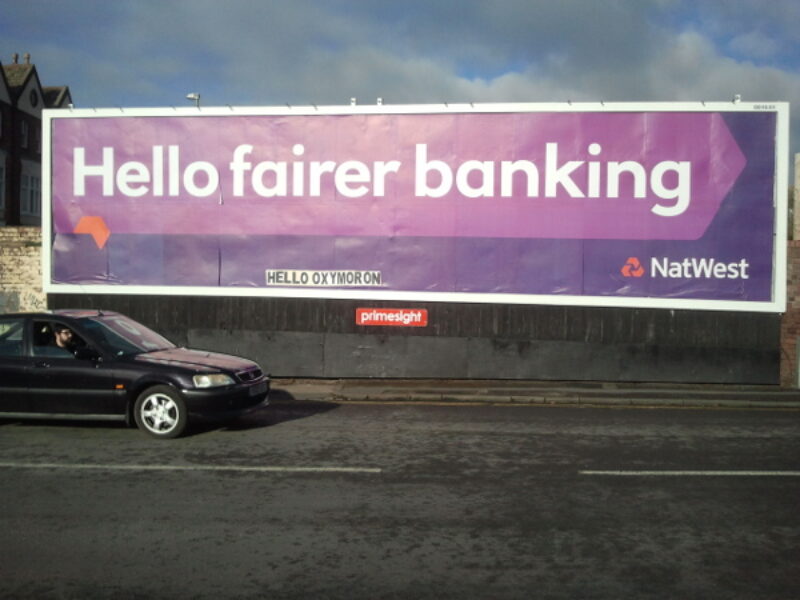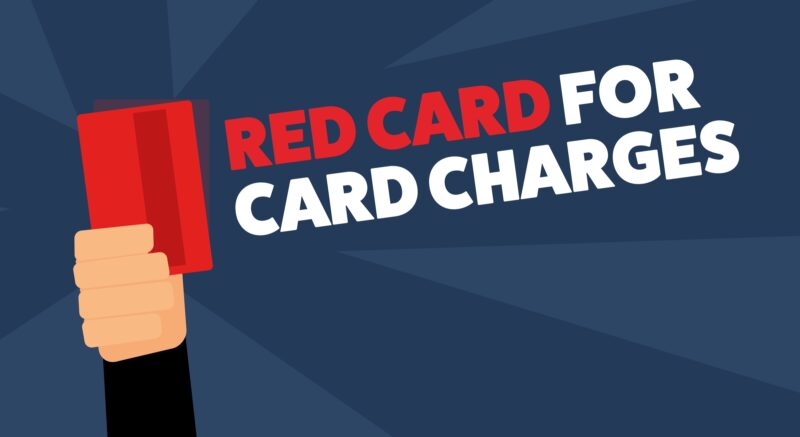2 December 2016
What happened to Fairer Natwest?

Two years ago, Natwest launched a grand new advertising campaign, proclaiming itself to be "Fairer Natwest". Slogans such as "Hello fairer banking" were plastered over enormous billboards and the sides of buses.
Part of that campaign was a commitment to never offer a better deal to new customers than they would give to existing ones. Further still, they announced that they were scrapping 0% deals on their credit cards - because it was such a negative business model.
Although I took RBS' advertising campaign with a pinch of salt, I was impressed by CEO Ross McEwan's rhetoric. And the announcement at the start of last year - that short-term bonuses were being scrapped for senior executives - felt like another meaningful step towards creating a bank that worked for, rather than against, its customers.
Long-termism isn't cheap
But focusing on the long-term can be expensive in the short-term. As we saw at Barclays, where CEO Anthony Jenkins was ousted for taking too long to deliver on his plans, shareholders get impatient. And at RBS, there's the additional pressure of needing to sure up the bank's capital position.
This week, we heard that RBS had failed the latest Bank of England stress test - and has been ordered to boost its reserves. And in the background, the rumblings of a complete change in direction are starting to emerge.
A couple of months ago, Natwest launched a new advertising campaign under the slogan "We are what we do". It's well worth a watch, because it's like no bank advert I've ever seen.
"We are thoughtful, we are thoughtless. We are kind, we are cruel. We are creative, we are destructive...." - and on it goes.
There's something humble and touching about it. Yet, it's also very dark. It left me feeling that RBS were apologising not just for what they had done, but what they were about to do.
Goodbye to fairer banking
I first saw the advert when a market research agency called me up to ask me what I thought of it. Then, to my astonishment, they followed up by asking what I would think if Natwest went back on its promise to not offer 0% balance transfer credit cards. Presumably we can expect a formal reversing of that policy in the New Year.
Fairer Natwest, no more.
Natwest's claim that it was pulling out of the 0% credit card market out of fairness to its customers was always hollow. It had next to no market share - so its decision to withdraw was fairly meaningless.
But if you're going to slap that promise over buses and billboards, then you should expect to get crucified if you go back on your commitment just two years later. Anyone remember the RBS customer charter? A whole list of promises and commitments that the bank stuck up in its branch windows in 2010 - only to go back on them one by one overt the subsequent years. They said that the Fairer Natwest promises were different. They weren't.
Another blow to rebuilding trust in banking
It's all incredibly depressing. If RBS could just have stuck to its guns, it might have started to win back customer trust. No one believes that you're fair just because you've plastered it on a billboard. But if you show some principles and you stick to them, people eventually start to give you a chance.
But whatever work has been done over the past few years is now being thrown out the window.
My trust in Ross McEwan has now evaporated. Although I fear more about who he will be replaced with. At Barclays, the board unashamedly said that Jenkins had been taking too long to deliver results on the retail side - and promptly replaced him with someone who would prioritise the bottom line.
I imagine a changing at the guard is due at RBS too.
Short-termism continues to rule in the banking world. Let's hope the raft of challenger banks waiting in the wings can start to put pressure on the big companies to take a longer-term view.




